1425 McHenry Road, Suite 204, Buffalo Grove, IL 60089
●Free Initial Consultation
Recent Blog Posts
I Own My House. How Can Domestic Battery Keep Me Out?
 If you have been charged with domestic battery – whether or not the charges are true – you could be facing an array of adverse consequences. If you are under a protection order, you will be ordered to have no contact with the alleged victim. But what if the alleged victim is your spouse, and the home you both live in belongs to you?
If you have been charged with domestic battery – whether or not the charges are true – you could be facing an array of adverse consequences. If you are under a protection order, you will be ordered to have no contact with the alleged victim. But what if the alleged victim is your spouse, and the home you both live in belongs to you?
While there are a number of variables in that scenario, generally speaking, you will be unable to enter your home until your domestic battery charges are resolved or the protection order is modified. If you find yourself unable to return to your home as a result of domestic battery charges and a protection order, it is important to speak to a knowledgeable Arlington Heights, IL criminal defense lawyer from The Law Offices of Matthew R. Gebhardt, P.C..
How Can the Conditions of My Order of Protection Order Be Lifted Early?
Either party in a protection order case can file a Motion to Modify the protection order or a Motion to Terminate the order. You will appear before a judge, and your attorney will argue on your behalf as to why the protection order should be modified or terminated.
If I Was Arrested for Domestic Battery Can I See My Kids? | Illinois
 If you are facing domestic battery charges in the state of Illinois, you may rightfully fear being unable to see your children or have your regular parenting time. Domestic battery occurs when a person knowingly makes physical contact with or causes bodily harm to a member of his or her household. Domestic battery is a criminal offense and can be charged even when there are no actual injuries. Even physical contact that is of a provoking or insulting nature can be charged as domestic battery.
If you are facing domestic battery charges in the state of Illinois, you may rightfully fear being unable to see your children or have your regular parenting time. Domestic battery occurs when a person knowingly makes physical contact with or causes bodily harm to a member of his or her household. Domestic battery is a criminal offense and can be charged even when there are no actual injuries. Even physical contact that is of a provoking or insulting nature can be charged as domestic battery.
Domestic battery can result in extremely serious penalties, including time in jail. A prior conviction for domestic battery can escalate the charges, even resulting in prison time and steep fines. Additionally, a conviction for domestic battery can impact employment opportunities and potentially even restrict your rights to see your children.
If you are facing domestic battery charges and are concerned about your ability to continue seeing your children, it can be helpful to speak to a Buffalo Grove, IL criminal defense attorney from The Law Offices of Matthew R. Gebhardt, P.C.. While family courts will always make decisions based on the best interests of the child, your criminal defense attorney can help you navigate not only your criminal charges but also the parenting time issues that can arise from domestic battery charges.
5 Reasons It Is Worth It to Fight a DUI
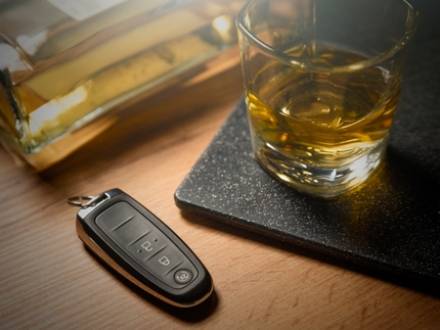 Many people who are charged with a DUI will simply plead guilty in order to have the matter over and done with. This is virtually never the best course of action. The reasons it is worth it to fight your DUI charges are discussed in detail below, but the best reason to have a DUI attorney by your side is that the prosecutor and judge will immediately have more respect for you, your rights, and your case. After being charged with DUI, if you stand before a judge on your own, without legal representation, there is little incentive for the judge to do anything other than impose the maximum penalties.
Many people who are charged with a DUI will simply plead guilty in order to have the matter over and done with. This is virtually never the best course of action. The reasons it is worth it to fight your DUI charges are discussed in detail below, but the best reason to have a DUI attorney by your side is that the prosecutor and judge will immediately have more respect for you, your rights, and your case. After being charged with DUI, if you stand before a judge on your own, without legal representation, there is little incentive for the judge to do anything other than impose the maximum penalties.
On the other hand, when you have an experienced DUI lawyer, you are likely to have one or more valid defenses to your charges. Being convicted of a DUI has many harsh consequences that can alter your future for a very long time. When you plead guilty, you can be sure that all those consequences will affect you, your employment, your relationships, and your finances. Having a Waukegan, IL DUI attorney from The Law Offices of Matthew R. Gebhardt, P.C. as your advocate throughout the process is much more likely to result in the most positive outcome possible.
How Can a Prosecutor Prove Something is Drug Paraphernalia?
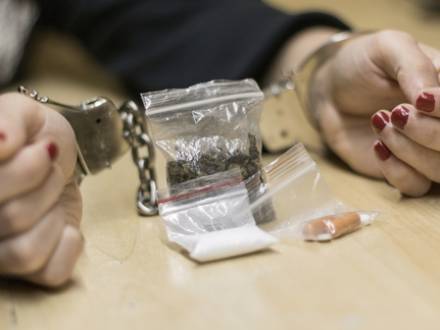 For a prosecutor to prove you were in possession of drug paraphernalia, it must be shown that an otherwise ordinary household item was used to ingest or store drugs. For this reason, it can be difficult for the prosecution to prove possession of drug paraphernalia because many items that we all use on a daily basis could potentially be used to deliver or store drugs. Two examples are plastic Ziploc storage bags, often used to store leftovers, or a digital scale, which can be used to weigh your food or determine postage. Prosecutors will typically rely on other evidence to suggest the household items were actually paraphernalia.
For a prosecutor to prove you were in possession of drug paraphernalia, it must be shown that an otherwise ordinary household item was used to ingest or store drugs. For this reason, it can be difficult for the prosecution to prove possession of drug paraphernalia because many items that we all use on a daily basis could potentially be used to deliver or store drugs. Two examples are plastic Ziploc storage bags, often used to store leftovers, or a digital scale, which can be used to weigh your food or determine postage. Prosecutors will typically rely on other evidence to suggest the household items were actually paraphernalia.
So, for example, even though most households in Illinois have a drawer with plastic bags stored inside, if those bags just happen to be near illegal drugs or cash, you might be charged with possession of drug paraphernalia. If you find yourself facing charges of drug paraphernalia, you should take these charges seriously. A knowledgeable Buffalo Grove, IL attorney can provide a solid defense on your behalf.
Can I Drive with My Gun Under My Seat?
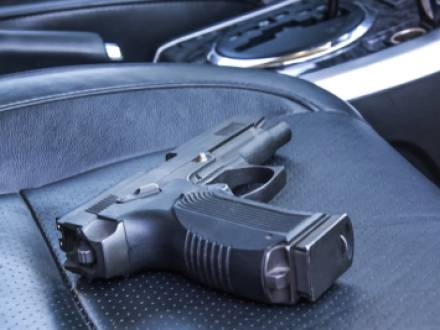 State gun laws vary considerably from state to state, as do federal firearm laws. State gun laws may be broader or more limited in scope than federal gun laws. Every state except California, Maryland, Minnesota, New Jersey, and New York has a provision in their state constitutions protecting the right to keep and bear arms under the Second Amendment. Reciprocity may exist between states regarding concealed carry permits, but this is not always the case.
State gun laws vary considerably from state to state, as do federal firearm laws. State gun laws may be broader or more limited in scope than federal gun laws. Every state except California, Maryland, Minnesota, New Jersey, and New York has a provision in their state constitutions protecting the right to keep and bear arms under the Second Amendment. Reciprocity may exist between states regarding concealed carry permits, but this is not always the case.
As an example, Oregon does not recognize an Idaho concealed carry permit, but Idaho does recognize a concealed carry permit from Oregon. Because state laws can differ so significantly, you should never travel with a handgun unless you are familiar with the laws of the states you will be traveling through, as you could end up facing weapons charges. Illinois does not recognize concealed carry permits from other states. If you have been charged with a firearm offense in the state of Illinois, you can benefit significantly from speaking to a knowledgeable Libertyville, IL weapons charges attorney from The Law Offices of Matthew R. Gebhardt, P.C..
Will My Child Go to Jail for Selling Drugs at School?
 Getting a call that your teenager has been arrested for selling drugs at his or her high school is a call no parent wants to get. Aside from the immediate concern of finding an attorney who is experienced in drug charges and Illinois juvenile crimes, there is the looming possibility of a trial and a potential conviction. As a parent, you also know there are long-term consequences to any criminal conviction, even for a minor.
Getting a call that your teenager has been arrested for selling drugs at his or her high school is a call no parent wants to get. Aside from the immediate concern of finding an attorney who is experienced in drug charges and Illinois juvenile crimes, there is the looming possibility of a trial and a potential conviction. As a parent, you also know there are long-term consequences to any criminal conviction, even for a minor.
In some cases, penalties for drug crimes can be as harsh for a minor as for an adult. Your child may also find it more difficult to be accepted to college, secure housing, or even find a job following a drug conviction. With so much at stake, it is essential that you not only find a lawyer but that you find the best lawyer for your situation. When you choose a Libertyville, IL juvenile crimes lawyer from The Law Offices of Matthew R. Gebhardt, P.C., with added experience in drug crimes, you can rest easy, knowing your child’s future is in good hands.
Will a BAC Close to the Legal Limit Get Leniency on a DUI?
 Imagine spending an hour with some work friends to celebrate a recent promotion. You have a couple of beers during the celebration, then head home. Suddenly, you see flashing lights in your rearview mirror. Despite your best efforts to convince the officer that you are far from impaired, you find yourself under arrest for DUI. A DUI arrest can seriously affect your future – and not in a positive way.
Imagine spending an hour with some work friends to celebrate a recent promotion. You have a couple of beers during the celebration, then head home. Suddenly, you see flashing lights in your rearview mirror. Despite your best efforts to convince the officer that you are far from impaired, you find yourself under arrest for DUI. A DUI arrest can seriously affect your future – and not in a positive way.
You could find yourself without a driver’s license, facing harsh legal penalties, perhaps even time in jail. What if your BAC tested barely at 0.08 percent – or even below? Will an Illinois judge look more leniently at your DUI charges? It is important that you speak to a knowledgeable Barrington DUI attorney. A skilled attorney from The Law Offices of Matthew R. Gebhardt, P.C. has years of experience dealing with situations just like yours and will know the best steps to take to resolve the issue and secure the most positive outcome possible.
My Wife Does Not Want to Press Charges – Why Was I Arrested?
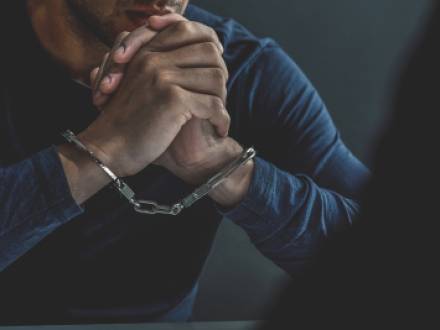 Domestic violence is a persistent issue across the United States, with the CDC estimating that more than a third of all adult women and men (36 percent and 34 percent, respectively) have been harmed by an intimate partner during their lifetime. In Illinois, those numbers are even higher for women (42 percent) but lower for men (26 percent). Arguments frequently happen between married couples and between others who reside in the same home.
Domestic violence is a persistent issue across the United States, with the CDC estimating that more than a third of all adult women and men (36 percent and 34 percent, respectively) have been harmed by an intimate partner during their lifetime. In Illinois, those numbers are even higher for women (42 percent) but lower for men (26 percent). Arguments frequently happen between married couples and between others who reside in the same home.
Although domestic violence has been an issue for decades, studies show that since the 2020 pandemic lockdown, incidences of domestic violence have increased by more than eight percent. Most experts believe that unemployment, lack of affordable childcare, and increased financial insecurity are at the core of this increase. Unfortunately, arguments between those living in the same home can erupt when these stresses build up.
Can I Fight a DUI If I Was Not Actually Driving?
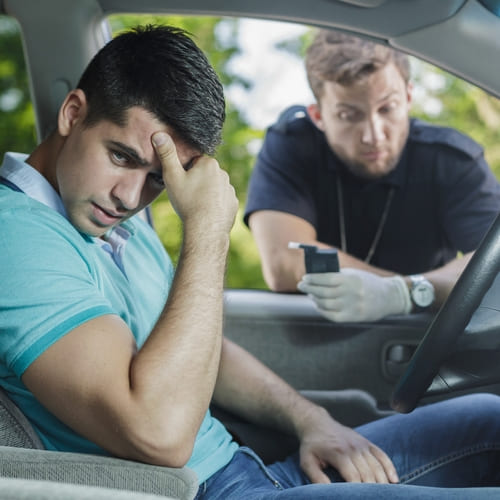 Driving while under the influence of alcohol is illegal in Illinois and across the United States. The legal blood alcohol limit is 0.08 percent in every state except Utah. Most adults are aware they could be charged with DUI if they are pulled over and given a breathalyzer test that reads at or above the legal limit. Far fewer are aware they could be charged with DUI when they were not driving.
Driving while under the influence of alcohol is illegal in Illinois and across the United States. The legal blood alcohol limit is 0.08 percent in every state except Utah. Most adults are aware they could be charged with DUI if they are pulled over and given a breathalyzer test that reads at or above the legal limit. Far fewer are aware they could be charged with DUI when they were not driving.
Illinois state law requires that a driver be in "actual physical control" (625 ILCS 11-501) to be charged with a DUI. If you have been arrested and charged with DUI, you need solid legal advice from an experienced Libertyville DUI lawyer. Having a skilled attorney by your side advocating on your behalf gives you the best chance of a positive outcome.
Can I Go Home if I Have Been Charged with Domestic Battery?
 Being charged with domestic battery—whether or not the charges are true—brings a host of negative consequences, both now and in the future. It is common for a no-contact order to be issued against the charged individual. This no-contact order prevents the person charged with domestic battery from having any contact with the alleged victim. This can create serious difficulties for the person charged if he or she currently resides in the same home as the alleged victim.
Being charged with domestic battery—whether or not the charges are true—brings a host of negative consequences, both now and in the future. It is common for a no-contact order to be issued against the charged individual. This no-contact order prevents the person charged with domestic battery from having any contact with the alleged victim. This can create serious difficulties for the person charged if he or she currently resides in the same home as the alleged victim.
Most Americans are barely getting by financially, so being required to find another place to live can be prohibitively expensive. Even those who can find temporary living quarters may need things from their home like clothing and medications. Can you go home following charges of domestic battery? The answer is not as straightforward as most people would like.
If you find yourself being charged with domestic battery, you need immediate legal assistance. An attorney who is highly skilled in Illinois domestic violence cases will make sure your rights are fully protected throughout the process.

















